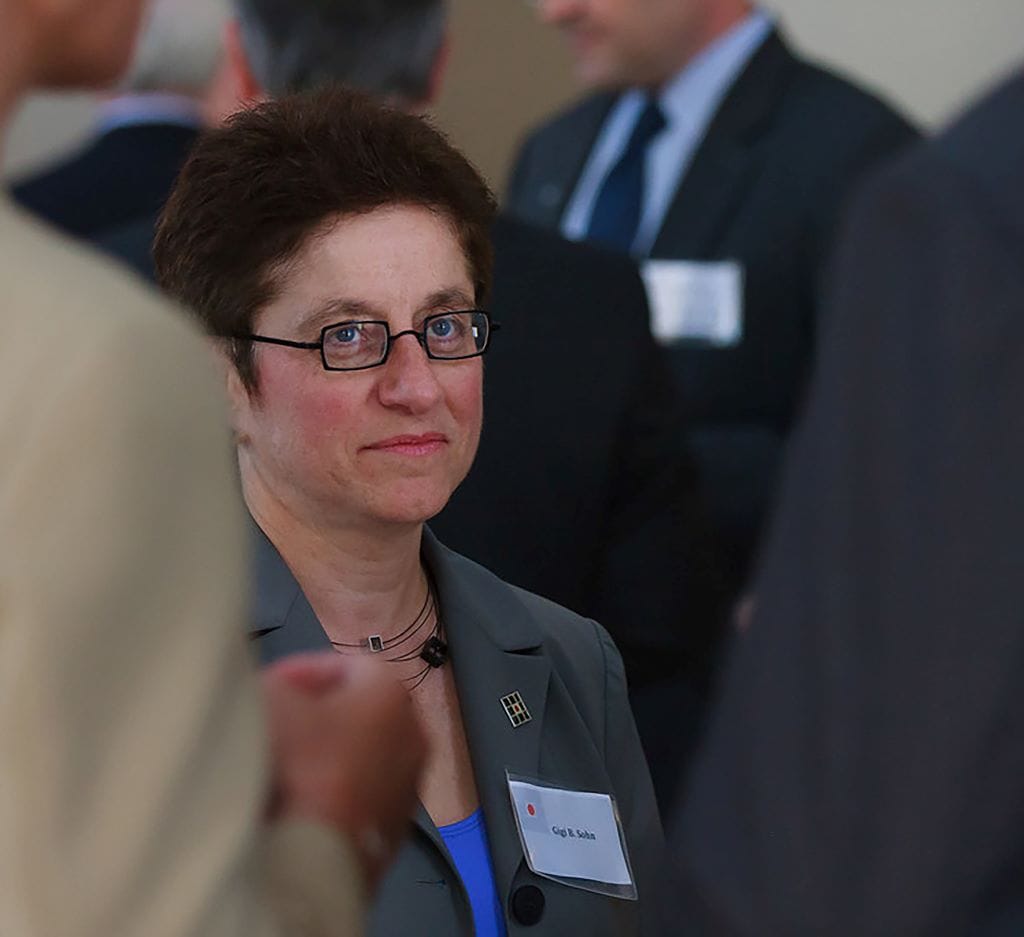Sohn Speaks After Withdrawal, MasterCard Back Indigenous Connectivity, Liberty-CityFibre in Buy Talks
The former FCC nominee spoke for the first time regarding future plans after withdraw.
Tim Su

March 20, 2023 – Former Federal Communications Commission nominee Gigi Sohn told The Washington Post in an interview published last week that she feels she “got a book to write” about her 16-month-long battle to get the Senate to vote her onto the commission.
Earlier this month, the two-time nominee of President Joe Biden withdrew her candidacy after what she called “dark money political groups” tainting her career. Sohn has been accused by Republicans of being impartial and donating to members of the Commerce committee that had previously pushed her nomination forward but which did not get to Senate votes.
“There’s been a bunch of stuff that’s happened over the past 16 months … that is going to make people’s eyes bug out,” Sohn told the Post.
During Sohn’s confirming process, she said she has been repeatedly subject to “unrelenting, dishonest and cruel attacks” from extremist groups and media.
“That was the first time I felt like ‘Oh my god, this could really rile up some crazies to come to my house … and threaten me and my family,’” the Post said she said. “I owed a duty to me and my family to move on, and this was very, very difficult on me emotionally.”
Sohn said she was “very proud” of the support she received from allies throughout the process, the Post said.
Sohn told the Post she had “several opportunities” lined up, which might be the intent to advocate internet access at the state level. But she also said she could do “something bigger and more,” according to the Post.
Mastercard Foundation partners with indigenous institute for internet access
The Mastercard Foundation announced Monday it is investing $3.7 million CAD, or $2.7 million USD, to help the Indigenous Connectivity Institute expand its current digital equity program.
The funding will “enable the ICI to expand current programs and develop new initiatives to reach 10,000 Indigenous young people over the next three years,” according to the release.
“This support from the Mastercard Foundation has the potential to advance Indigenous digital equity beyond our imaginations and make real the projects and collaboration we’ve been dreaming up for years. I am so excited to see this new partnership in action,” Darrah Blackwater, ICI Advisory Council member, said in a press release.
The indigenous-led organization is focused exclusively on digital equity in Canada and the United States by providing training programs to advance technical and advocacy skills, the release said.
“A fast, reliable internet connection is essential to ensuring that Indigenous young people can access high-quality education and meaningful employment opportunities,” says Jennifer Brennan, Director of Canada Programs at the Mastercard Foundation. “The shared vision for this partnership is a commitment to ensuring Indigenous young people and communities have the capacity, support, knowledge, and financial resources to lead digital equity to advance their aspirations and strengthen their communities.”
State broadband leaders will join Broadband Breakfast’s online event and talk about how their states are approaching the digital equity planning process and what they hope to accomplish with federal funding on Wednesday April 15 at 12 noon ET.
Liberty Global acquisition of CityFibre and Liberty Global unlikely to be approved
Virgin Media O2 is seeking to acquire fiber competitor CityFibre for £3 billion, according to media reports.
The Telegraph reported Saturday that Virgin is in talks with the competitor, but questions remained about the likelihood of the deal moving past regulators.
Capacity reported Monday that equity analyst Jerry Dellis from Jefferies Equity Research does not believe it will get past the Competition and Markets Authority.
“A VMO2-CityFibre combination would appear to threaten the regulatory objective of network competition providing choice for ISPs, leading to better outcomes for consumers,” a Dellis research note said, according to Capacity.
“With a back-book comprising millions of customers that have been subject to multiple years of retail price increases, we question what incentive VMO2 has to compete down wholesale pricing.”









Member discussion